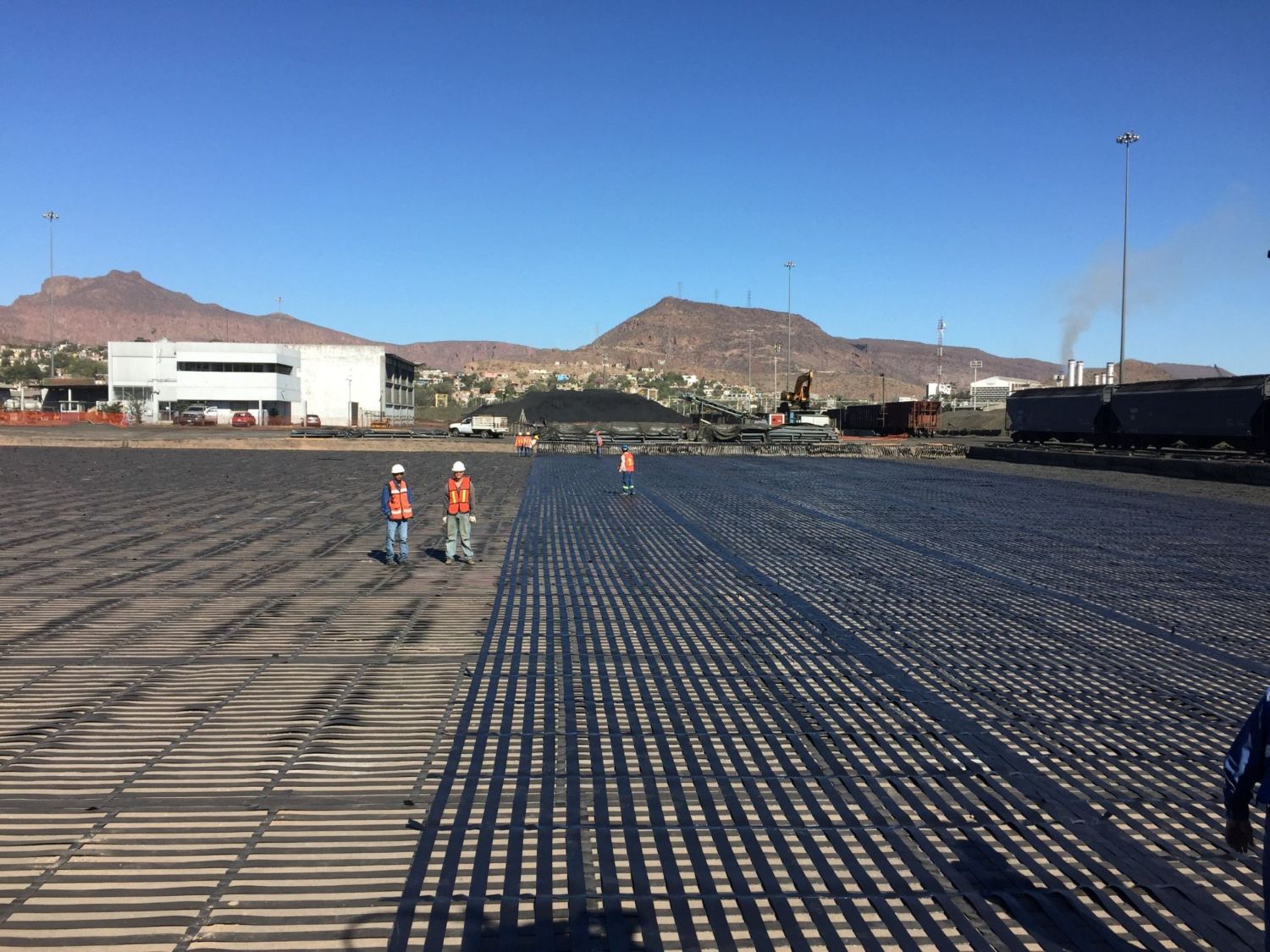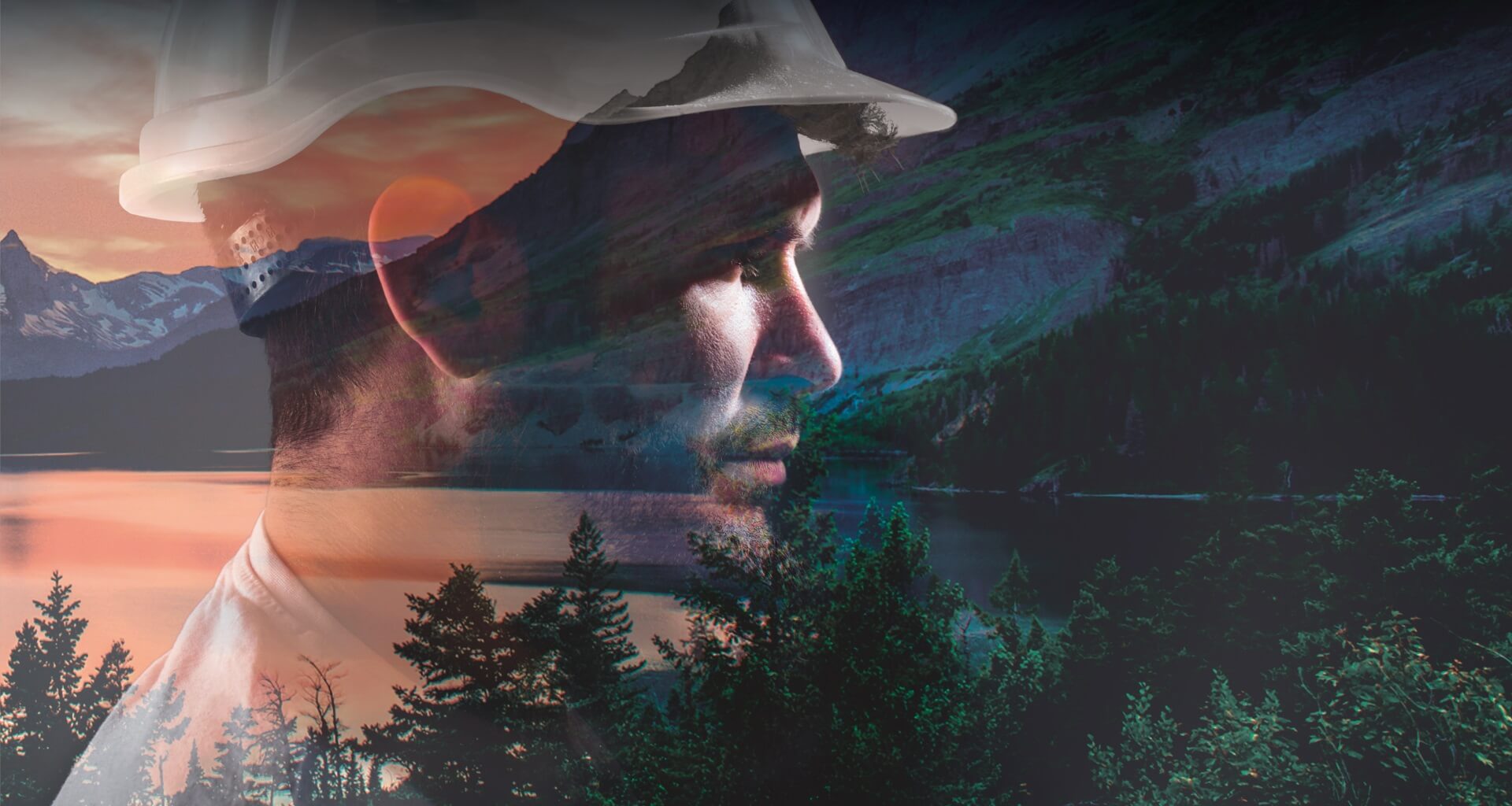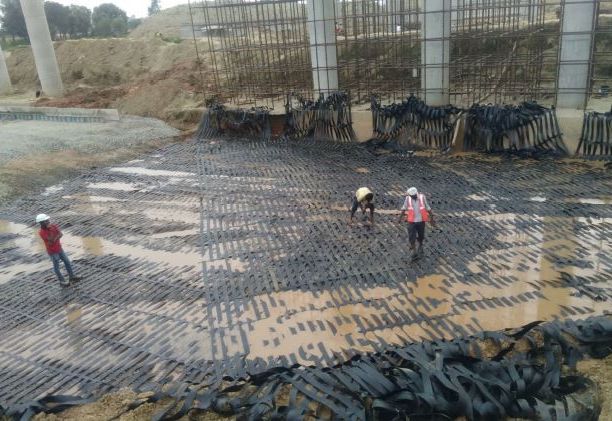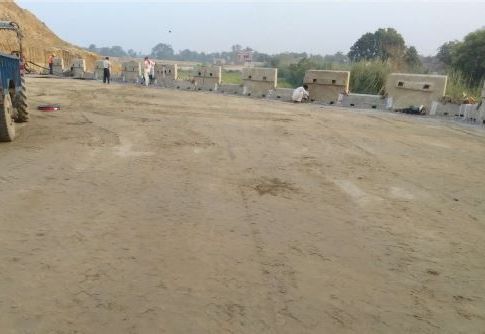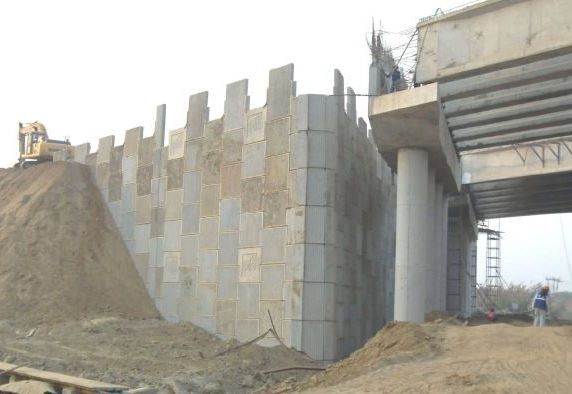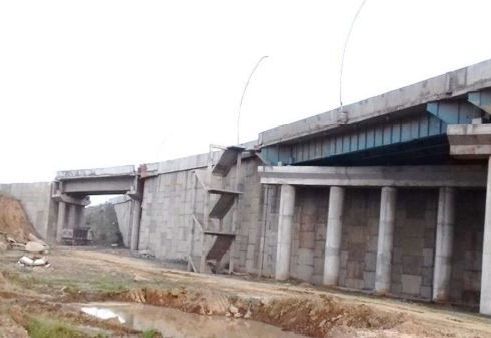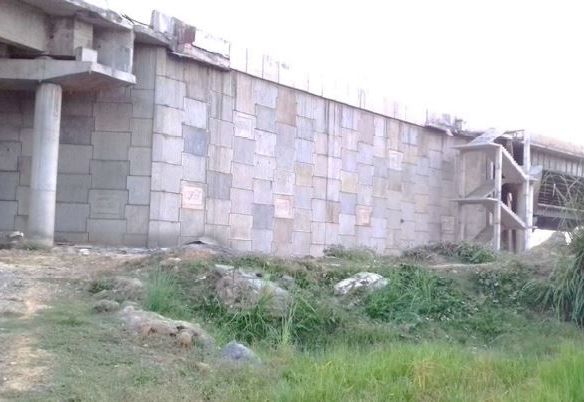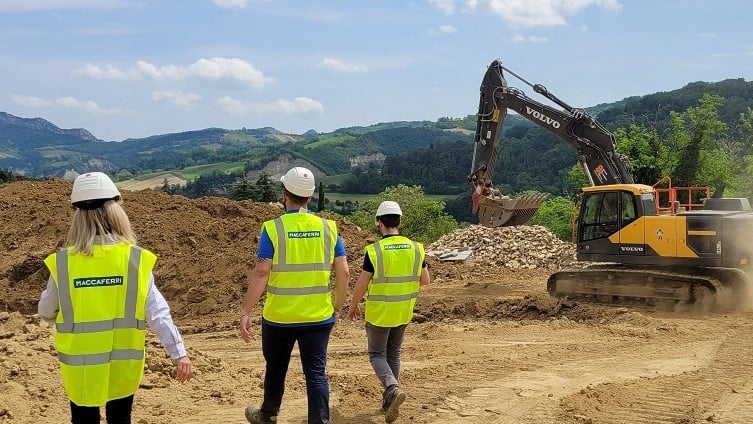Vertical Walls with Concrete Facing Panels
2021
FIROZABAD TO ETAWAH - UTTAR PRADESH - India
UTTAR PRADESH EXPRESSWAY INDUSTRIAL DEVELOPMENT AUTHORITY (UPEIDA)
REINFORCED SOIL WALLS ALONG THE STRETCH OF FIROZABAD & ETAWAH
Problem
UPEIDA proposed development of Firozabad to Etawah access-controlled expressway project in the state of Uttar Pradesh on Engineering Procurement and Construction (EPC) basis. There were total 12 Nos. of structures along this stretch i.e. 5 Nos. of Minor Bridges, 3 Nos. of Major Bridges, 2 Nos. of Rail over Bridges (ROB), 2 Nos. of Ramps with maximum heights up to 16.0 m. Amongst all the structures ROB at CH 88+406 was found to be critical. This structure was having a skew angle of 30 degrees, which added construction complexity to the project. ROB was constructed near an irrigation canal, which was another challenge to work in waterlogged area. It was decided to construct 16m complete vertical wall without any batter. The lab test results and bore log indicated that the stratum at the site comprised of both non-cohesive as well as cohesive soil. Bore-log represented that, soil layers of low plastic clay, silty sand and medium plastic clay existed up to 16.0 m depth. Presence of clay and water table makes soil susceptible for consolidation settlement.
Solution
Reinforced Soil Wall system (MacRes) was proposed over conventional RCC wall due to its economy, flexibility, aesthetics and quick construction. RS Wall was designed for maximum height of 16m. In addition to the internal & external stability checks of RS wall, consolidation settlement analysis was performed. Clayey soil with high water table is prone to settle in consolidation. Analysis was carried out by assuming replacement of top cohesive soil with cohesionless frictional fill. To avoid differential settlement & slip failure high strength uniaxial geogrids i.e. Paralink were proposed in layers as basal reinforcement beneath RS wall which would act as a raft foundation. Maximum depth of replacement for highest portion of the wall was calculated to be 3.0m with basal reinforcement. Construction of the RS wall along with required ground improvement has been successfully completed in short period of eleven months of time. High strength uniaxial geogrid ensured uniform settlement and no distress in panels is noted.
Used Products
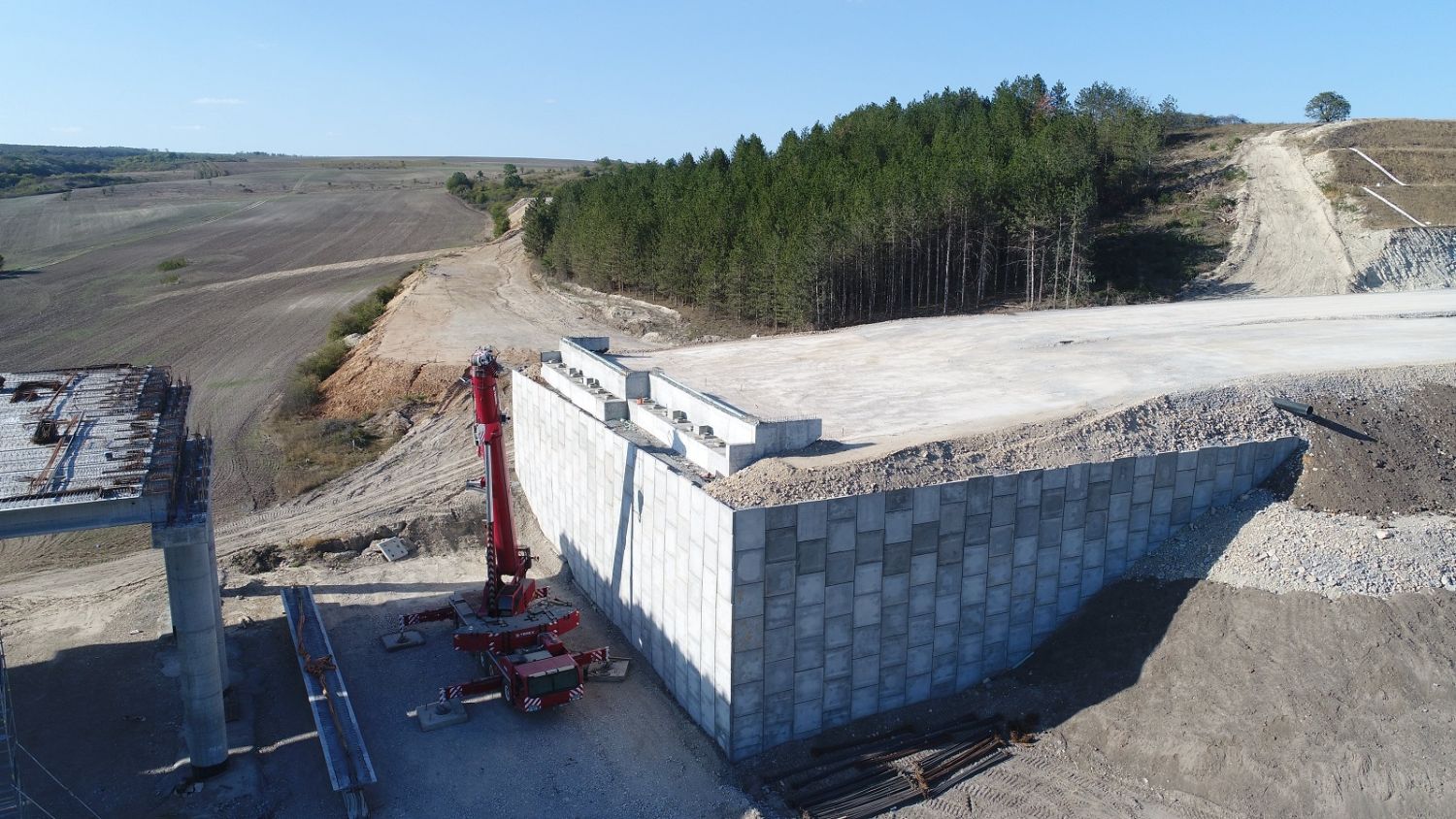
MACRES
The Maccaferri MacRes system features vertical discrete precast concrete facing panels and layers of ParaWeb reinforcement, planar geostrips manufaView